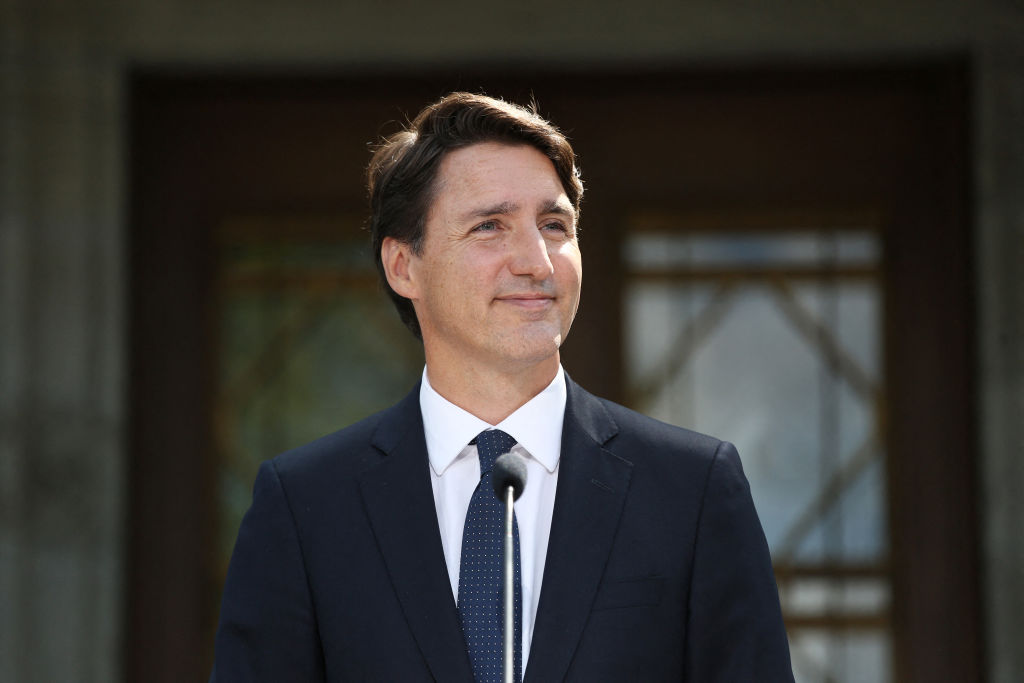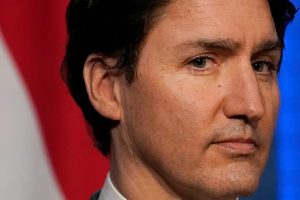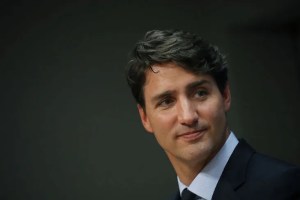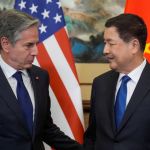In the dog days of summer, Canadian prime minister Justin Trudeau and his Liberal government are skating on thin ice once more.
An August 18-23 national survey by Abacus Data of 2,189 adults revealed that 56 percent of respondents believed he “should step down” rather than run again for re-election. Only 27 percent felt he should stay; 17 percent were unsure.
The Canadian public is clearly tired of his ineffective, mediocre leadership and want him to return to private life
This number is in line with recent polling data in Canada. Pierre Poilievre and the opposition Conservatives have led in almost every opinion poll conducted since he became party leader on September 10, 2022. Moreover, the federal government has largely slipped into the 26-29 percent range in national popularity — and, in several cases, is behind by either close to or above double digits. In the most recent example, the Conservatives lead the Liberals by 38-26 percent in an August 23 poll by Abacus Data.
For Trudeau, who has led the Liberals since 2013 and been PM since 2015, this is a real kick in the political backside. The Canadian public is clearly tired of his ineffective, mediocre leadership and want him to return to private life.
In fairness, this isn’t the first time that Trudeau has teetered on the brink of political disaster. He’s survived a multitude of political pitfalls, hurdles, mistakes, mishaps and scandals the past eight years. This includes three older instances of blackface, two ethics violations, public spats with some female MPs and ministers and spending taxpayer dollars like a drunken sailor.
Was it skill, or the luck of fools, that enabled him to survive this long? His political spin doctors obviously helped him to some degree. That’s what they’re paid to do, after all. At the same time, significant stumbles by the two previous Conservative leaders, Andrew Scheer and Erin O’Toole, helped save the PM’s bacon in the 2019 and 2021 elections, respectively.
Poilievre is a different political animal than his two direct predecessors. I’ve known him for over two decades, and endorsed him a couple of days before he entered the Conservative leadership race. He’s intelligent, strategic, an excellent orator, media savvy and enjoys the give and take of discussion and debate.
Most importantly, Poilievre is as politically astute as one of his more successful predecessors, former Conservative prime minister Stephen Harper. An admirer of the late British prime minister Sir Winston Churchill, he knows full well “those that fail to learn from history are doomed to repeat it.” To Poilievre’s credit, he hasn’t deviated from this credo one iota since becoming party leader.
The Conservative leader has also taken several pages out of Trudeau’s political playbook — and other parties on the left. He’s targeted young voters, political independents and the apolitical with videos and speeches about housing, cryptocurrency and reducing the influence of “gatekeepers” in society. He’s also crafted messaging to directly appeal to middle-class voters, talking about escalating costs of staples like milk, bread and butter, mortgage rates and real estate prices, gas prices at the pumps and the “affordability crisis” that various provinces are struggling with.
Most Conservative leaders in Canada — and, truth be told, around the world — would traditionally shy away from this type of messaging. Even though similar themes were ultimately successful for right-leaning world leaders like former British prime minister Boris Johnson, former US president Donald Trump and former Australian prime minister Scott Morrison. As it turns out, Poilievre’s strategy has worked exceedingly well and appealed to many Conservatives and non-Conservatives in my country. The proof is in the pudding — and polling, as the case may be.
As Daniel Johnson nicely put it in the Daily Telegraph, Poilievre “offers a modernizing, moderately libertarian agenda, a change from the Liberals’ big state profligacy and fiscal incontinence. For the first time in eight years, Trudeau is up against a dangerous opponent.”
Will Poilievre’s masterful strategy ultimately succeed against Trudeau’s lousy leadership? Time will tell. The Liberals currently have a three-year confidence and supply agreement with the New Democrats, Canada’s Socialist Party, in place until June 2025. It could potentially save Trudeau’s political hide yet again. Based on current Canadian attitudes about the prime minister, it’s also possible that his best-before date (if there really ever was one) has expired.
This article was originally published on The Spectator’s UK website.


















